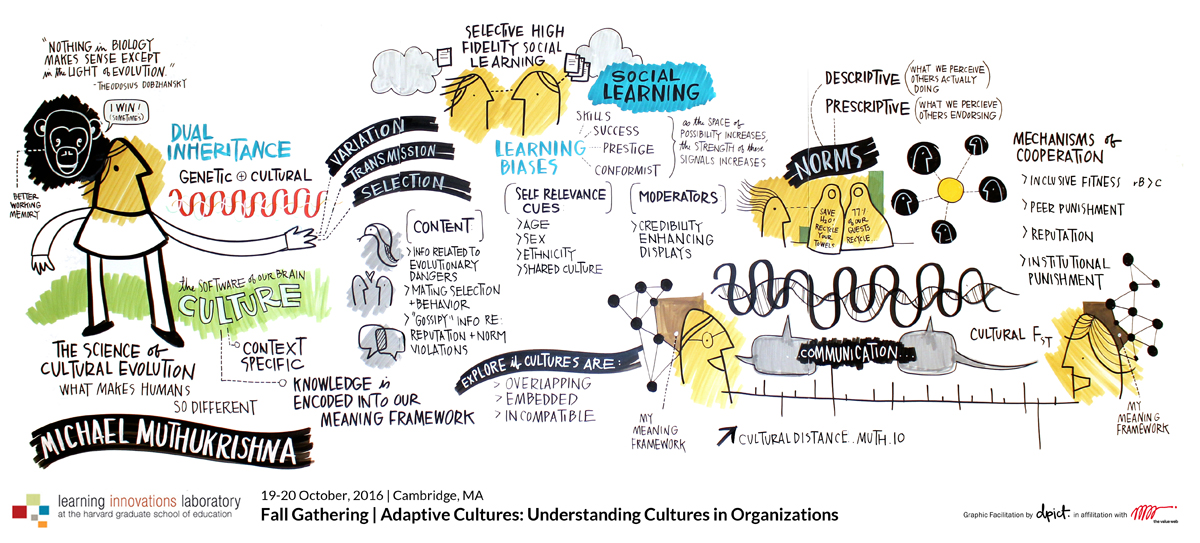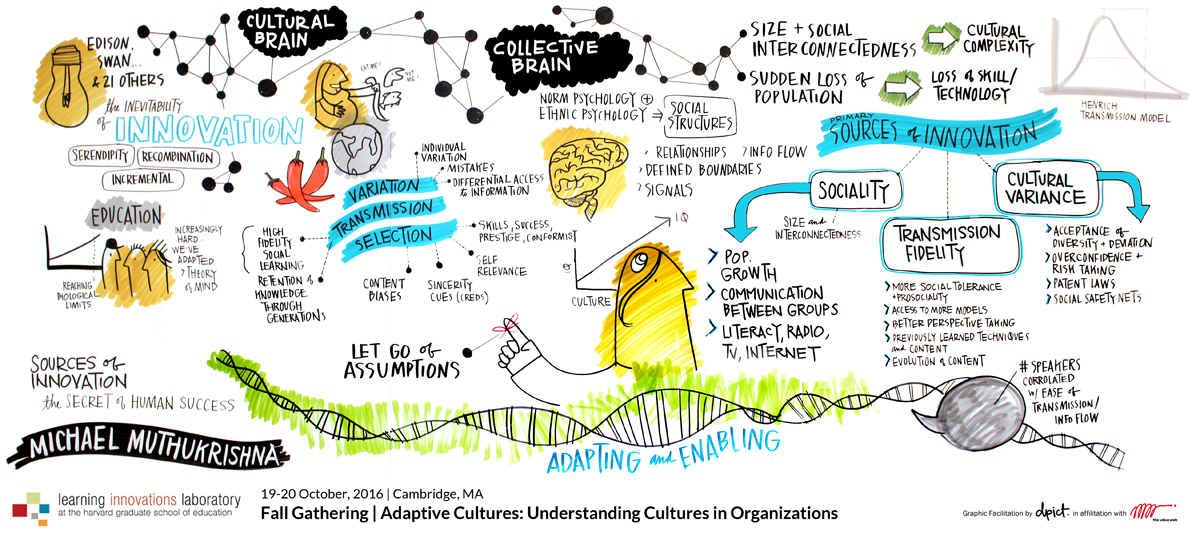 Michael Muthukrishna is Assistant Professor of Economic Psychology at the London School of Economics.
Michael Muthukrishna is Assistant Professor of Economic Psychology at the London School of Economics.
LILA October guest Michael Muthukrishna has written about how culture has evolved in the human species, and this perspective can help us begin our exploration of adaptive cultures in organizations. Muthukrishna and co-authors argue that humans are “an ‘evolved cultural species,’” which “has evolved to socially transmit complex behavior-shaping information between generations” (Chudek, Muthukrishna, & Henrich, 2015, p. 2). Our species has attained “cumulative cultural evolution,” which is where our culturally transmitted behaviors “are more complex, sophisticated and well-adapted than anything a single asocial or non-cultural individual could devise alone in their lifetime” (p. 2). No single person could ever re-create the world we live in.
Over time, culture itself evolves. What does it mean, though, to say culture “evolves” when we think of evolution as something that requires genes? Evolutionary adaptation requires three characteristics that are met by both genes and culture: “(1) individuals vary, (2) this variability is heritable (information transmission occurs), and (3) some variants are more likely to survive and spread than others” (p. 2). This applies not only to organisms and genes but to practices (e.g. hunting and foraging practices, weapons design) passed on by imitative learning and, in the human species and a very few others, by teaching.

To listen to the recording of Michael’s presentation click the link below: Science of Evolution
